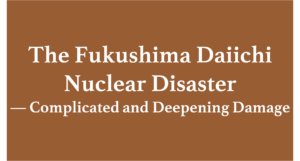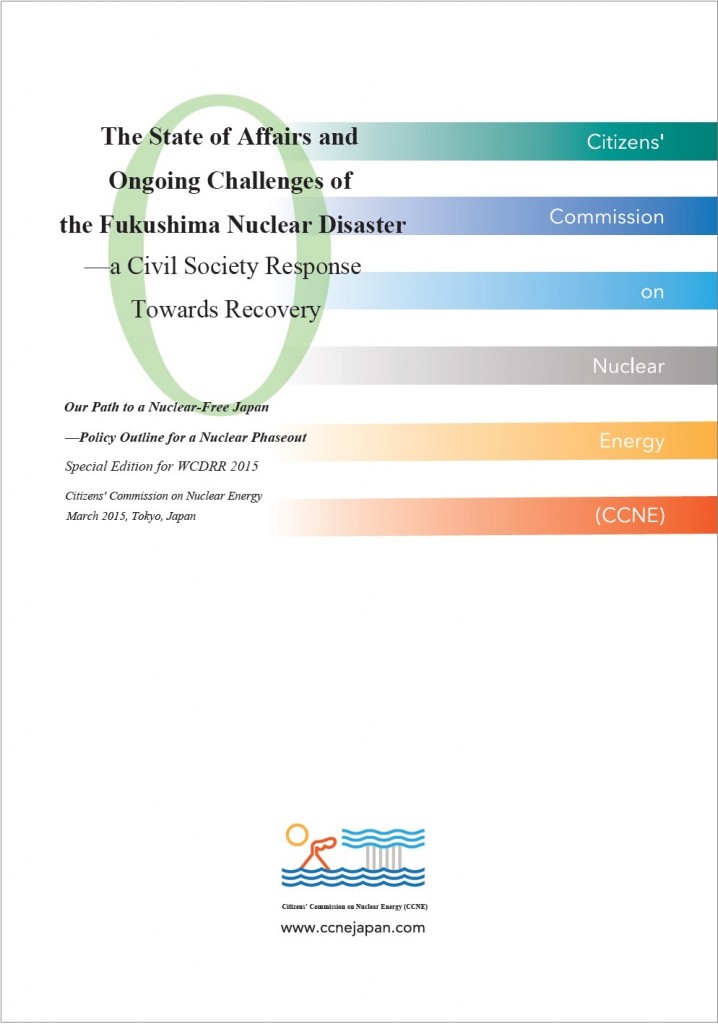![]()
|
August 22, 2023
Urgent Statement: “Decision to start releasing ALPS-treated radioactive water into the ocean ignoring the agreement with the interested parties is the worst means” Citizens’ Commission on Nuclear Energy (CCNE)
1. There is no understanding among the parties involved. 2. The oceanic release increases the environmental pollution but brings no solution to the decommissioning and radwaste problem. In addition, large amounts of highly concentrated radioactive sludge and highly contaminated adsorbents are derived from ALPS treatment and secondary treatment processes. There is no immediate prospect of these disposals. Even if the ALPS treated water started to be released into the ocean with these problems left unaddressed, it would not solve the huge amount of pollutants generated by the Fukushima nuclear accident. 3. The oceanic release provides no good solution at all to the problem of contaminated water in the Fukushima Daiichi nuclear accident. In addition, ocean releases involve enormous costs. The cost of processing the ocean release was originally estimated at 3.4 billion yen by the Tritiated Water Task Force of the Ministry of Economy, Trade and Industry in 2016. In reality, however, about 43 billion yen has already been appropriated for undersea tunnel construction, about 30 billion yen for dealing with reputational damage, and 50 billion yen for commercial fishery support funds, totaling more than 120 billion yen already. The full charge of the combined expenses over the next 30 years is yet to be billed.
4.The Citizens Commission on Nuclear Energy (CCNE) opposes the oceanic release of ALPS-treated radioactive water and calls for implementation of alternative measures. CCNE has proposed viable options on land to deal with the contaminated water: it should either be stored in large robust tanks for long-term storage, or it should be solidified into mortar and disposed in concrete pits. CCNE also suggested that air cooling of debris instead of current water cooling is feasible and effective in evading the water problem. CCNE strongly urges the government to reverse the discharge decision and implement alternative measures that exist. See also ” Commentary: The IAEA Comprehensive Report does not provide a “scientific basis” for the oceanic release of ALPS-treated radioactive wastewater. The release plan should be halted and consideration given to the implementation of alternative proposals” issued by the CCNE on July 18, 2023. (http://eng.ccnejapan.com/?p=398)
For inquiries, please contact:
The Citizens’ Commission on Nuclear Energy (CCNE)
iTEX Bldg. 3F, 16-16 Yotsuya-Sanei-cho, Shinjuku-ku, Tokyo 160-0008, Japan
TEL: 03-6709-8083
Email: email@ccnejapan.com
|


